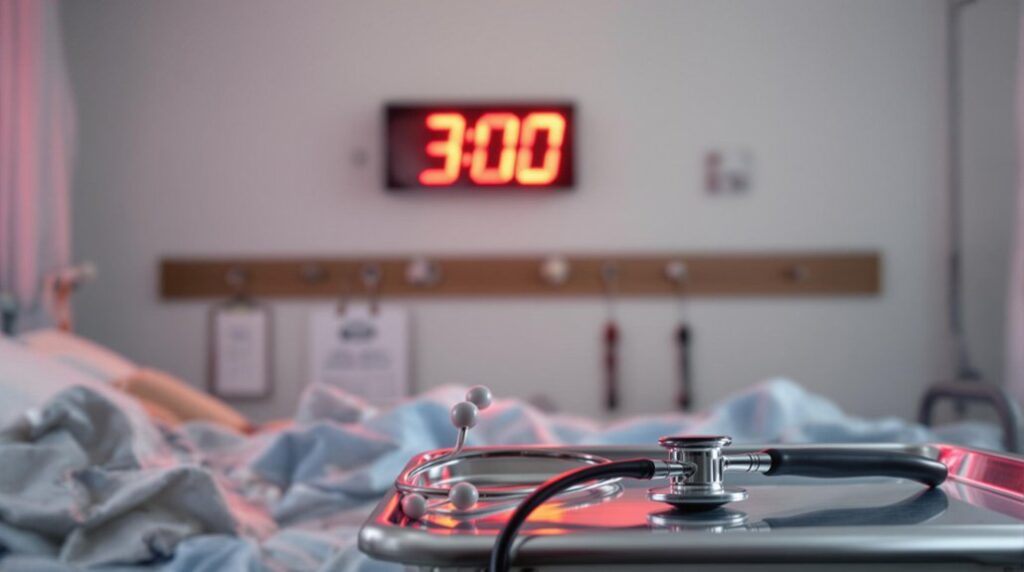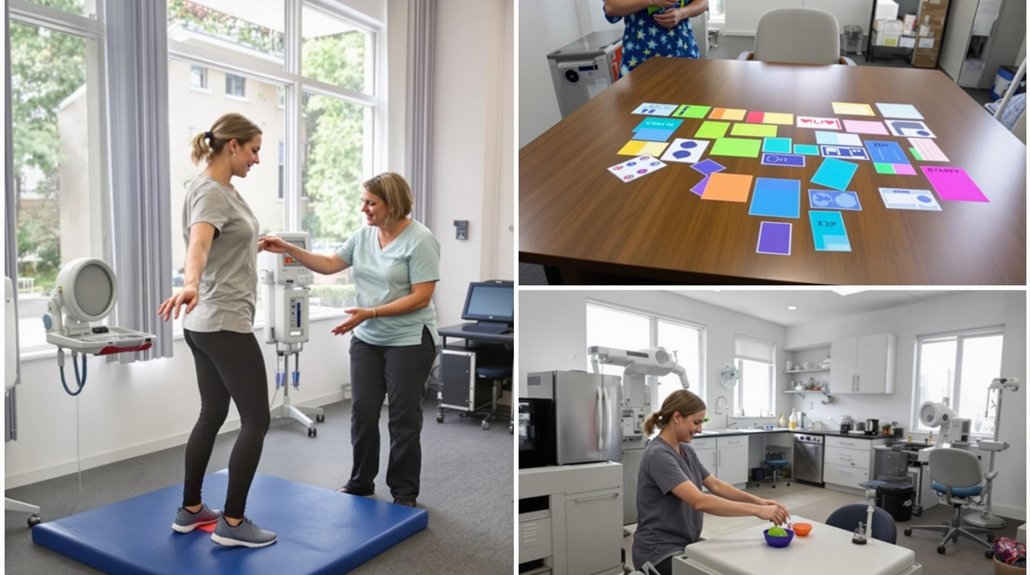The first three hours after a traumatic brain injury (TBI) are vital for your survival and recovery outcomes. During this “golden window,” you’ll need immediate medical attention to prevent lasting brain damage. Warning signs like confusion, severe headache, vomiting, or loss of consciousness require emergency response right away. You can’t wait – every minute counts for stabilizing essential functions and reducing secondary injury risks. Understanding what happens during these vital hours could make all the difference.
Understanding the Critical First 3 Hours After Head Trauma
The first three hours following a traumatic brain injury (TBI) represent an essential window for medical intervention and potentially life-saving treatment.
When brain trauma strikes, the first three hours become a crucial race against time to save lives and prevent lasting damage.
During this vital period, you’ll need to focus on quick symptom recognition and immediate emergency response to optimize recovery outcomes.
You should watch for warning signs like confusion, severe headache, vomiting, seizures, or loss of consciousness. If you’re caring for someone with a suspected TBI, don’t delay in calling emergency services – every minute counts.
While waiting for help, keep the person still and monitor their breathing and consciousness levels.
Medical professionals consider these first hours critical because they can prevent secondary injury and reduce complications through proper medical interventions.
Quick action within this timeframe often leads to better recovery prospects for the injured person.
Research shows that brain neuroplasticity enables ongoing recovery and improvements for years after the initial injury with appropriate therapy.
Medical Interventions During the Golden Window
Once medical teams respond to a TBI emergency, they begin a carefully coordinated series of interventions within this golden three-hour window.
During this significant period, you’ll see medical professionals follow strict treatment protocols designed to prevent secondary brain injury and stabilize essential functions.
Emergency response teams focus on maintaining proper oxygen levels, controlling blood pressure, and preventing increased intracranial pressure.
They’ll secure the patient’s airway, monitor essential signs, and may administer medications to reduce brain swelling.
If necessary, they’ll perform immediate surgical interventions to remove blood clots or reduce pressure on the brain.
You’ll notice medical teams also conduct rapid neurological assessments, obtain detailed medical histories, and order important diagnostic imaging to guide their treatment decisions.
Every minute counts in maximizing the patient’s chances for ideal recovery.
Similar to skilled nursing care for post-surgical patients, medical teams provide specialized monitoring to prevent complications and promote optimal recovery outcomes.
Long-Term Impact of Early TBI Treatment
Because prompt medical intervention occurs within the golden window, patients often experience remarkably better long-term outcomes in their recovery journey.
When you’re caring for someone who received early TBI treatment, you’ll likely notice they face fewer challenges with balance, memory, and speech compared to those who didn’t get immediate care.
Early intervention greatly impacts long-term recovery by reducing the risk of secondary brain damage and preserving essential neural pathways.
Swift medical response following TBI prevents cascading damage and protects vital brain connections, setting the foundation for optimal recovery outcomes.
You’ll find that patients who receive timely treatment often maintain better cognitive function and require less extensive rehabilitation.
They’re also more likely to return to their daily activities sooner and maintain higher levels of independence.
If you’re supporting a TBI patient, understanding these benefits of early treatment can help you set realistic expectations and provide more effective care.
A comprehensive recovery care plan incorporating specialized services can significantly enhance the healing process for TBI patients at home.
Conclusion
These first three hours after a brain injury are like a precious window of opportunity. Just as every minute counts when you’re baking a cake or catching a flight, these moments are critical for getting the right care. Think of it as racing against a ticking clock – the sooner you get medical help, the better chance you have for a good recovery. Your brain needs quick attention, just like a garden needs water on a hot summer day.
Don’t feel like you have to make these decisions alone. Brain injuries can be scary, but there are caring professionals ready to help guide you through this challenging time. If something doesn’t feel right, trust your instincts and seek medical care right away.
If you or a loved one need help, don’t wait. Reach out to Focus Family Care today at (561) 693-1311 or email us at info@focusfamilycare.com.




